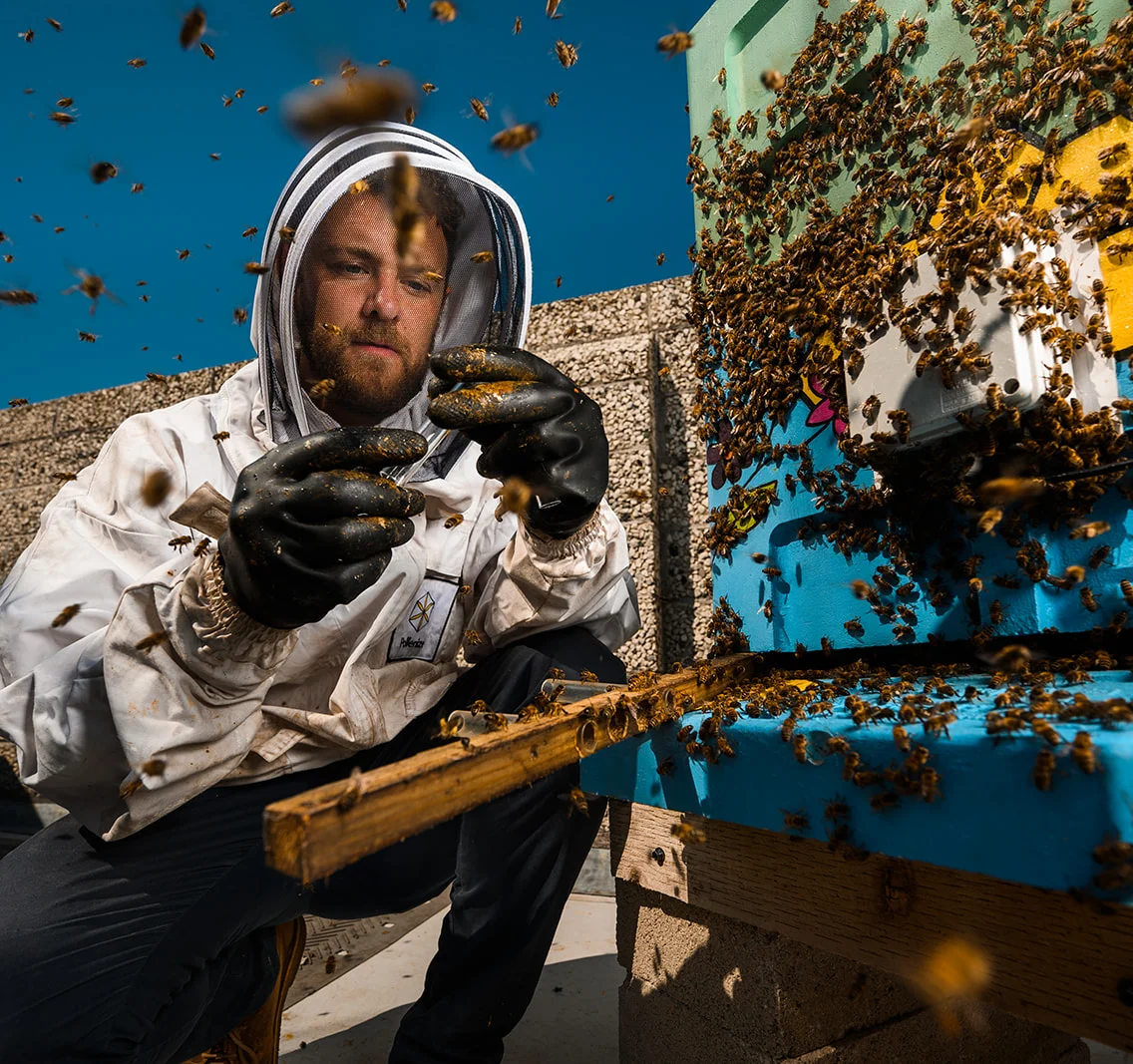At Andrew Brown Dental in Tavistock, we believe in supporting initiatives that promote environmental conservation and biodiversity. That’s why we’re proud to support The B4 Project, an organisation dedicated to protecting the UK native dark bee – Apis mellifera mellifera. Through our commitment to 1% for the Planet, we contribute to the vital work of The B4 Project in safeguarding the genetic diversity of honey bee populations. In 2023, The B4 Project commissioned Pollenize to investigate the degree of hybridisation of honeybees in Devon, with samples analysed by BeeBytes. The results of this study shed light on the genetic makeup of local honey bee populations, revealing surprising levels of hybridisation and the persistence of native genetics. Let’s explore the intricate world of honey bee genetics together.
Background
The native honey bee subspecies, Apis mellifera mellifera, has long been interbred with imported subspecies from Italy and Eastern Europe, blurring the lines of genetic purity in UK honey bees. Ongoing research aims to assess the extent of hybridisation and the survival of native genetics amidst this intermingling.
Honey Bee Sampling
To evaluate hybridisation in Devon, beekeepers submitted samples from their colonies for analysis. Each sample, representing an individual adult honey bee, underwent admixture analysis alongside data on colony location and history.
Statistical and Admixture Analysis
Analysis of 165 honey bee samples unveiled a spectrum of genetic admixture, with varying degrees of M lineage (native) and C lineage (imported) dominance. On average, M lineage ancestry stood at 58%, challenging assumptions about the extinction of native bees due to historical diseases.
Geographical Analysis
Surprisingly, there was no clear geographical pattern in admixture proportions. Neighbouring colonies displayed diverse M and C lineage scores, hinting at cross-mating and colony movement. Further investigation is necessary to unravel these complexities fully.
Beekeeper Responses
Beekeepers’ input provided insights into colony histories, correlating specific lineage claims with genetic admixture results. While M lineage claims were widespread, explicit C lineage claims were sparse, suggesting potential hybridisation post-introduction.
Report Conclusion
The Devon study illuminates the intricate realm of honey bee genetics, revealing the persistence of native heritage amidst hybridisation. These findings challenge prevailing narratives of native bee extinction and underscore the importance of conserving genetic diversity. Continued research is vital to comprehend the dynamics of hybridisation and its implications for honey bee populations.
Report Discussion
If you would like to read the complete report, you can download it here. We B4 is are delighted to bring together the key people behind the study, who will present and discuss their findings with Devon beekeepers in a short Zoom call hosted by the Tavistock Branch of DBKA. Please join us if you possibly can – the Zoom meeting details are provided below.
Presented by
Matthew Richardson – BeeBytes
Norman Carreck
Mark Barnett – BeeBytes
Will Bayfield-Farrell Pollenize
The presentation will last approximately 20-30 minutes, followed by a 30-minute Q&A session, making the total time commitment less than an hour.
Topic: The Devon Honeybee Lineage Report
Time: Apr 1, 2024 07:00 PM London
Join Zoom Meeting – Zoom Meeting Link
Meeting ID: 863 2725 4557
By unraveling honey bee genetics, researchers aim to inform conservation strategies and mitigate the impact of hybridisation on pollinator populations. At Andrew Brown Dental, we’re committed to supporting The B4 Project’s efforts through our partnership with 1% for the Planet. Together, we contribute to the preservation of honey bee populations and the vital role they play in our ecosystem. Honey bees are not just insects; they embody a rich genetic legacy, highlighting the interconnectedness of life on our planet.

